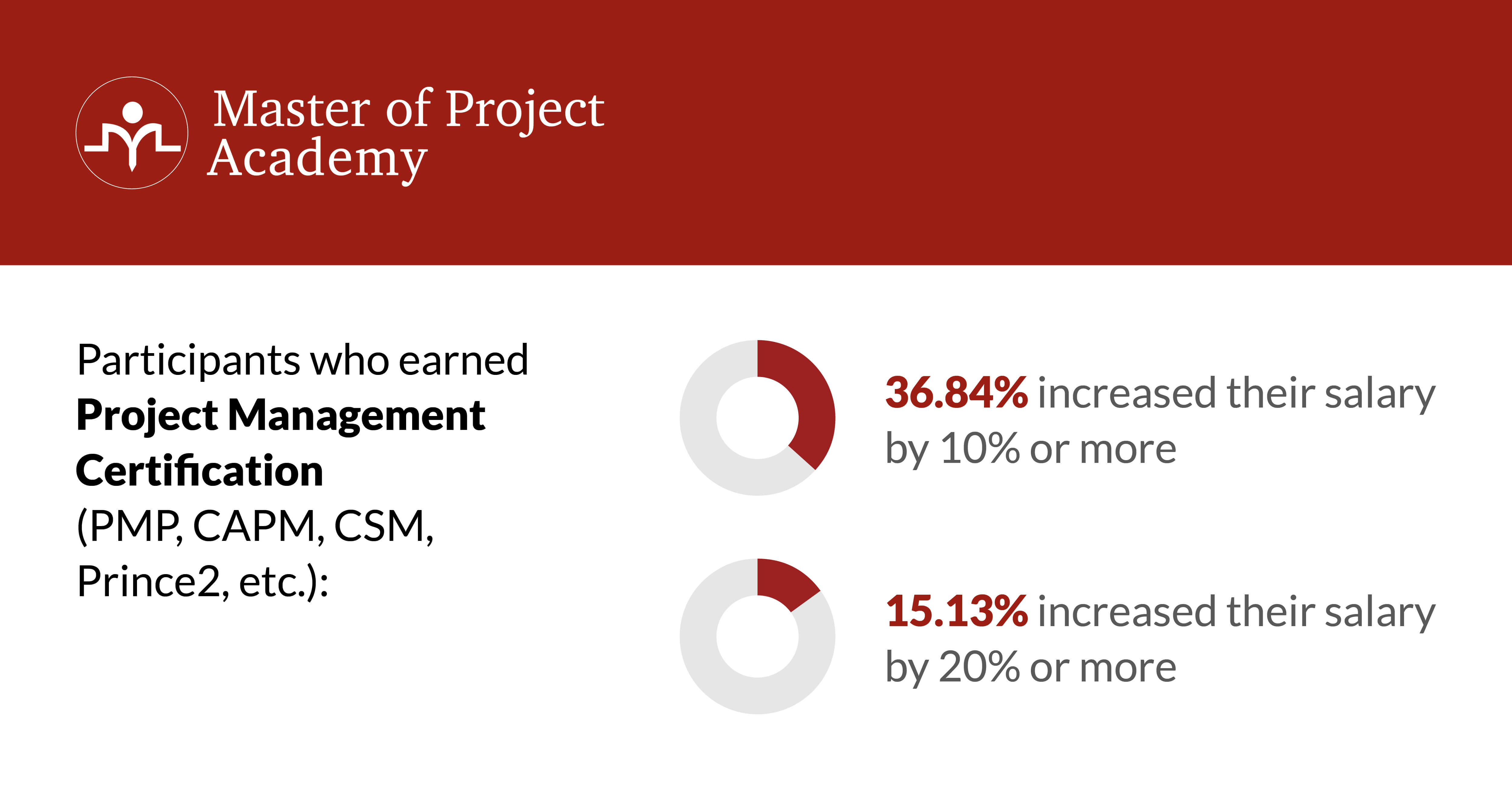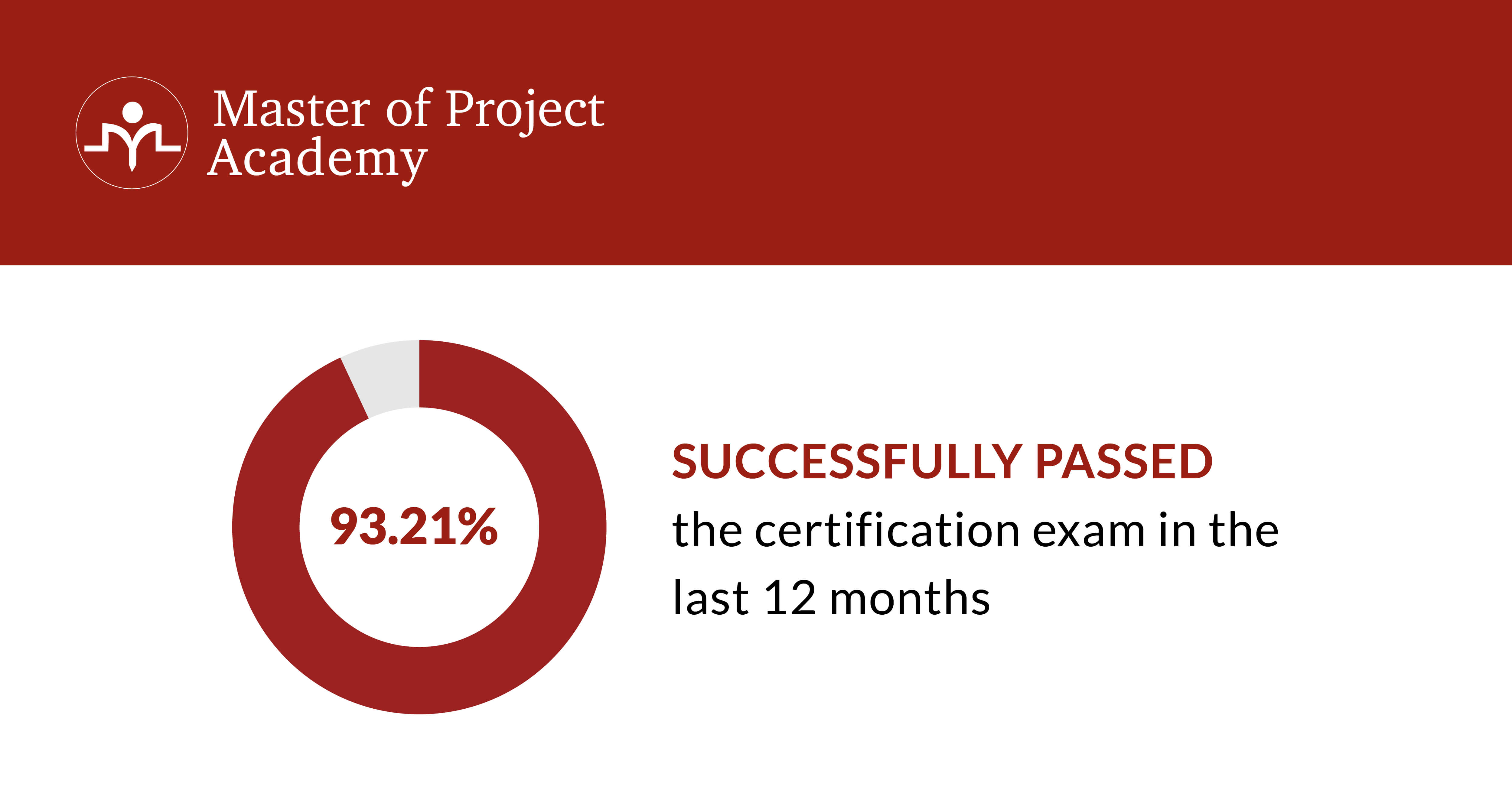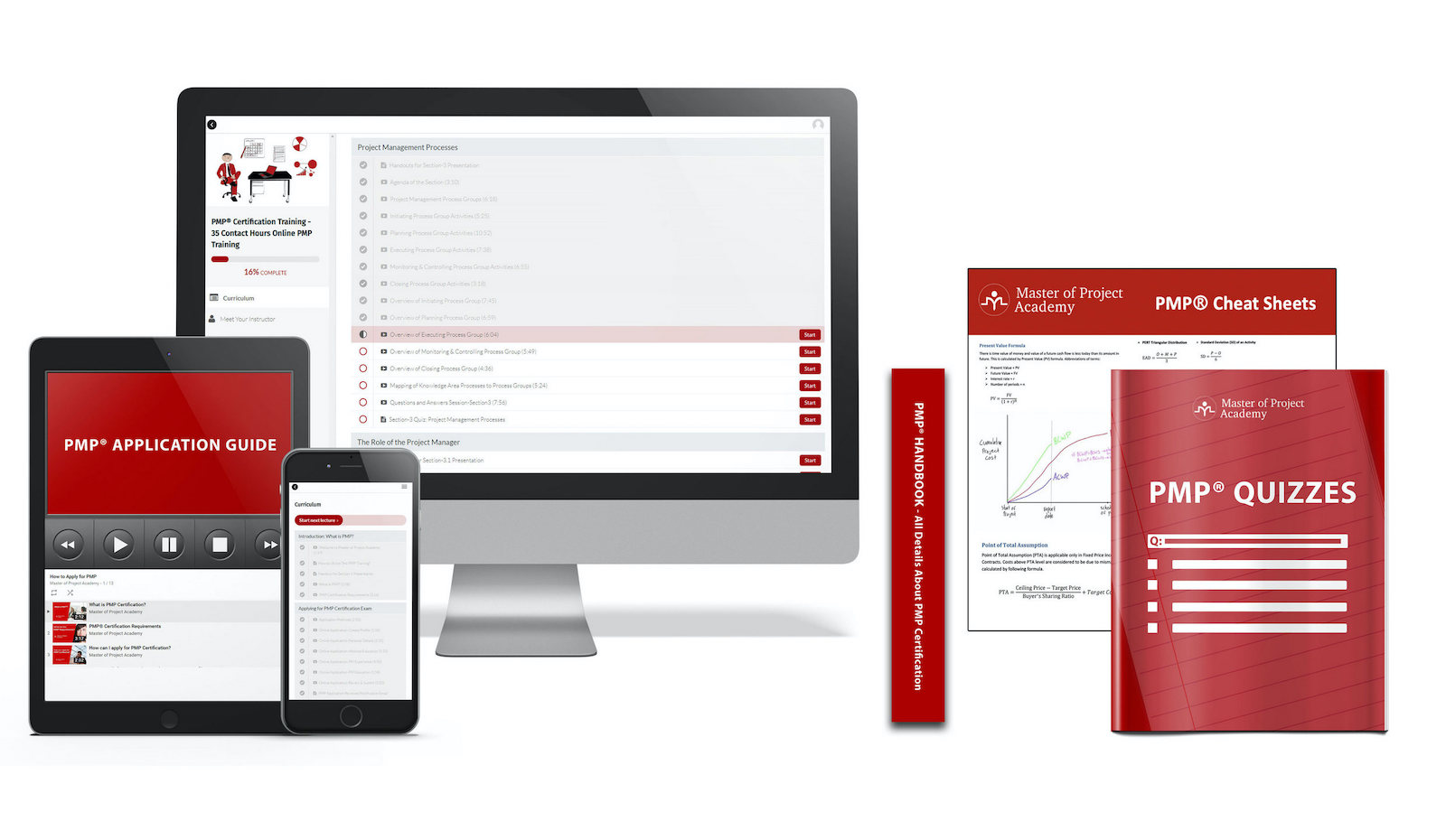Before going into the details of the PMP certification pass rate, let’s briefly define what PMP is. PMP or Project Management Professional is one of the most important and valuable certifications for the project management profession. It is an industry-recognized certification for people working in the project management field. PMP certification may give you a higher salary than those without the PMP certification. Thanks to the PMP certification, you can understand and communicate the global language of project management with other professionals. It gives you the opportunity to connect with the community of professionals, organizations, and experts worldwide.

Attend our 100% Online & Self-Paced One-Hour Free PMP Training.
The Project Management Institute seeks some PMP eligibility requirements from PMP candidates. PMP candidates should satisfy PMI’s PMP certification requirements. Once you satisfy the PMP exam requirements, you can apply for the PMP exam. Compared to other certifications, PMP is harder to obtain and to pass the exam you have to be more prepared. That’s why during your exam preparation, after your complete your 35 contact hour course, you should use practice tests.
- You can read our PMP exam prep article here: PMP Exam Prep
In this article, we will describe all the aspects of the PMP exam pass rate.

After helping over 200,000 professionals in more than 180 countries with a 99.6% first attempt pass rate, we have prepared a seven-step PMP study plan. Read this PMP study plan and create your own PMP prep plan accordingly.
Do you want to hear what our students say about our PMP courses? You can watch this video!
Various Aspects of the PMP Passing Score
Before answering the question about the aspects of the PMP exam percentage to pass, one thing must be kept in mind: PMI doesn’t include much information about the PMP exam pass rate. Here is a list of things that PMI never disclose about PMP certification exam passing score:
- The criteria related to PMP test pass rate.
- How many pass PMP on the first try.
- How many questions will you get from which PMBOK knowledge areas
- If the exam questions are random or get selected according to your answers.
Watch our “What is the PMP® Exam Passing Score and PMP® Exam Pass Rate?” video
PMI does not disclose any data or information on the PMP exam pass rate for attempting the exam for the first time / first try. You can only make informed guesses from the statistics of PMP training organizations and study groups. So there is not an exact number for how many questions you must answer correctly.
What is included in our 35 contact hours of self-paced PMP Training Program?
- Are you looking to improve your data analysis in Excel skills? Check out our Excel data analysis course!
- We also offer a Financial Forecasting and Modeling Training course for you to improve your business decision-making!
What is the pass percentage for the PMP exam?
Here is what the PMI says about the PMP pass rate:
“The PMP exam passing score for all PMI credential examinations is determined by sound psychometric analysis. PMI uses subject matter experts -project professionals from around the world and many different disciplines- to determine how many questions you must give correct answers to pass the exam. Each scored question in the exam is worth one point; and your final score is calculated by totaling the points you have earned on the exam. The number of questions you answer correctly places you within one of the performance rating categories you see in the report.”

Hint: Do you wonder when you can take the PMP exam? Read more about the PMP exam schedule, the next PMP exam date and how you can schedule, and more in the PMP exam schedule post.
In short, there is no official exact answer related to the PMP test pass rate from PMI. It is not possible to state a fixed PMP exam passing score that will help you pass the PMP exam. The difficulty level of the questions you get will make a change. Two candidates won’t get the same set of questions. Hence, it makes sense that the PMP exam passing score also varies. An exam with easy questions will have a higher PMP exam passing score than an exam with relatively more difficult questions. Furthermore, each question does not carry equal weight. Hence, it becomes even more difficult to estimate how much you need to score to reach the PMP exam passing score.
Watch Alan’s “New” PMP® Exam Journey Interview
PMP Exam Pattern vs PMP Exam Certification Exam Pass Rate
How many questions are in the PMP exam? There is a total of 180 questions in the PMP exam. There are 230 minutes to complete the exam. In the new exam content outline, PMP Exam Questions will be a combination of multiple-choice, multiple responses, matching, hotspot, and limited fill-in-the-blank types of questions. How many questions to pass pmp
We recommend each PMP aspirant schedule their PMP exam if they can score over 70% with PMP sample questions, a practice exam, or from a PMP exam simulator.
The exam schedule is 4 hours. There are no scheduled breaks during the exam. You can still take breaks, but this break time will be deducted from the 4 hours. The exam begins with a tutorial and is followed by a survey. You might take about 15 minutes to complete. However, this time is excluded from the total of 4 hours.
These questions come from the PMBOK guide specification and PMP Code of Ethics. There are 5 project management process groups in which you have to show your proficiency.

As per PMI, the table below shows the percentage of questions from each of the domain areas:
| Domain | % of Questions |
| People | 42% |
| Processes | 50% |
| Business Environment | 8% |
History of PMP Exam Pass Rate
- PMBOK Guide, 3rd Edition was introduced in 2004. In July 2005, the PMP exam was changed in order to be aligned with PMBOK Guide, the 3rd Edition. PMI increased the passing percentage to a staggering 81% during the same period. With the increase in the PMP exam pass rate, the percentage of candidates clearing the exam in the first attempt decreased dramatically. PMI reacted quickly and dropped the PMP exam pass rate to a more reachable 61% in December 2005.
- Until 2006, the PMP Handbook clearly specified 61% as the PMP exam pass rate, but afterward, PMI stopped revealing the exact PMP certification exam pass rate, even though, they continued to provide the domain-wise percentage on their score reports.
- The next big change happened at the end of 2007. This was the time when PMI changed the diagnostic results presented in the PMP certification exam passing score reports. Instead of percentages related to the domains, PMI started using global best practices in examination administration by using proficiency levels. So now PMI provides proficiency PMP exam proficiency levels like Proficient, Moderately Proficient, and Below Proficient by domain, instead of a numerical PMP exam pass rate percentage scored in each domain.
Below are some top myths regarding the PMP exam pass rate:
1. Is the PMP exam pass rate 61 %?
There is no information regarding this. As we have mentioned, the last time PMI published a PMP exam pass rate was in 2005. Since PMP is a psychometric test, the PMP exam pass rate depends on the kind of questions you get. If you get easier questions, then the PMP exam pass rate will likely be higher. On the other hand, if you get more difficult ones, the PMP certification exam passing score could be lower. So what score you need to pass the PMP exam depends on the questions you got in the exam.
2. Can someone fail if they get ‘Below proficient’ level in any domain?
This is not true. PMP looks at someone’s overall PMP exam performance on the test for all domains not at one single area. Also, the weighting of questions in each of these areas might vary greatly. Hence, even if you get a below proficient level in one domain, it doesn’t automatically mean you failed. But, if you do poorly in those sections which have a higher weightage in questions, there is a bigger chance you might not reach the PMP exam pass rate.
3. Is the same weighting applicable to all the questions?
The weighting for all the questions is not the same. As the PMP certification exam pass rate differs based on the kind of questions you get, the difficult questions will have more weightage than the easier ones. The best way to build your sense of understanding about what is difficult and what is easy is through practicing a lot of sample questions.
4. Is there only one single PMP exam pass rate score for everybody?
There is no clear information regarding this. It is similar to the myth of the PMP exam pass rate score being 61%. As such, this is also not true. As the difficulty level of the questions will vary and as different questions will carry unequal weighting, a single PMP exam pass rate doesn’t apply to all the candidates. Some students may get a 55% percentage and pass. Some others may score 65% and still not be able to reach the PMP exam pass rate. So there is no clear information about the PMP exam percentage to pass.

When do you know the PMP Examination Report?
For the Computer-Based Test, you will know the result once you complete the exam. The Pearson VUE test center where you took the exam will give you an “official” sealed copy (computer print-out) of your test result. In addition to the overall pass or fail status, important diagnostic information on your performance is provided for each domain.
For the Paper-Based Test, You will not receive the exam report on the day of the exam. It will take six or eight weeks before you get the result. You will be able to access your exam report on the online certification system approximately six to eight weeks after completion of the exam.
The information mentioned in the PMP Exam Score Report
The PMP Exam Score Report contains:
- Overall Test Result: Pass or Fail.
- The performance information domain-wise :
- Proficient
- Moderately Proficient
- Below Proficient
Note: The PMP Exam Report does not show your actual score or even percentage score.
How can we analyze the overall pass result based on proficiency levels?
There is no clear information on what combination of PMP exam proficiency levels can lead to an overall pass result. However, we can derive the below observations based on an analysis of various test result reports:
- When you get proficient in five domains, there is no doubt you have reached the PMP exam pass rate.
- If you get moderately proficient in all domains, you may have reached the PMP exam pass rate.
- When you get proficient in three domains, and below proficient in two domains, it is a big probability that you will be passing the exam.
- When you get moderately proficient in four domains and below proficient in one domain, then most probably you will pass.
- If you get below proficient in three domains, regardless of your result in the other three domains, the most likely result will be that you won’t be able to reach the PMP exam pass rate.
- When you get moderately proficient in three domains and below proficient in two domains, it is very likely that you will fail the exam.
- If you get below proficient in more than three domains, you will not reach the PMP exam pass rate most likely.


